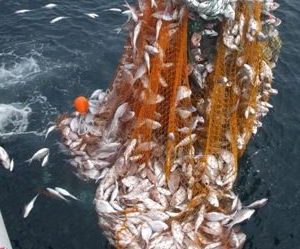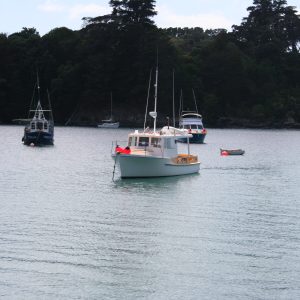LegaSea is and never has been anti-commercial fishers, we just want to reduce the environmental impacts of bulk harvesting so we can have a more sustainable fishing future. That means getting rid of trawling, seining and dredging from inshore waters so fish populations are free to reproduce and thrive in a healthy marine environment. It also means creating a system where the “gumboots”, the guys and girls on the water, can determine their own destiny without being controlled by quota shareholding landlord’s demands for profits.

Recently LegaSea worked with our New Zealand Sport Fishing Council fisheries team and other organisations to develop submissions in response to a raft of management proposals. Fisheries New Zealand (FNZ) issued 17 proposals and gave us 18 working days to respond. We didn’t have the time or resources to do justice to every proposal so we concentrated on the relevant fish stocks that needed the most attention.
Of the nine submissions sent to FNZ, six were South Island stocks, or part, and five submissions provided conditional support for the Minister to increase the Total Allowable Commercial Catch (TACC). A common theme in the submissions was the need for the Minister to address wastage issues, through banning non-selective methods such as trawling and seining from inshore waters. In particular, to leave known juvenile fish hot spots alone.
Commercial fishers cannot be allowed to keep catching and dumping hundreds of tonnes of small and damaged fish every year. We need better at-sea monitoring and to be using smarter fishing gear. Advances in technology are so profound that we can almost see each fish swimming by. The 19th century trawl nets have passed their use-by date and so has the Quota Management System.
The QMS has passed its use-by date because it has evolved into a feudal system. Quota landlords are now directing at-sea activity while the people getting wet feet have little say about what fish to land, and how much they earn. This forces people on the water to run a least-cost operation, having to sacrifice many environmental, social and cultural values in the process.
There needs to be fundamental change, but that won’t come without Ministerial and Ministry oversight.
Importantly, the power needs to be wrested from corporate landlords and returned to the people on the water; so they can afford to act responsibly and maintain future production by nurturing our marine resources.
Delivering quality fresh fish to local and specialist markets will mean higher returns for the crew and greater public support for sustainable fishing practices. A win-win for all of us.





